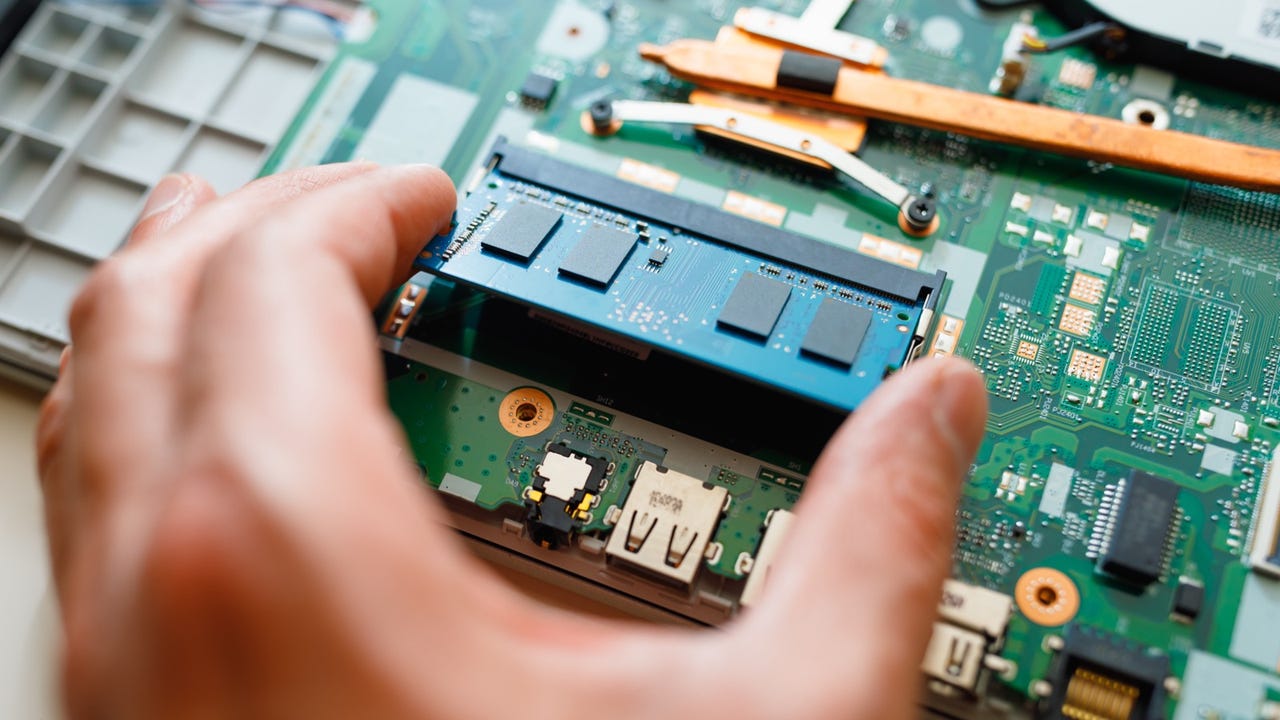
































Here's what laptop RAM modules look like.
stock.adobe.comYour Windows laptop is starting to feel sluggish, maybe after updating the operating system, or you've installed some new programs or games.
Chances are you're either running really low on storage space or RAM.
Also: How much RAM does your Windows 11 PC need?
Here are 's top picks for a variety of use cases.
Read nowRAM -- short for" random access memory" -- is vital for your computer system to open, run, and manage programs, applications, and services. It's where your computer stores data it needs to access rapidly.
The amount of RAM a system has can make or break a PC. The more RAM you have (to a point), the more applications you can have running side-by-side.
OK, so you decided to save some money and bought a laptop with 4GB of RAM and you're now feeling it.
Just add more RAM, right?
I wish it were that simple.
What I find on Windows 11 is that those running systems with less than 8GB of RAM are the ones most likely to feel the pinch. Windows 10 users can get away with a little less, but if you have less than 4GB, you're in that danger zone.
Windows 10 and Windows 11 are really good at telling you if RAM is running low. You'll see a message that says, "Your computer is low on memory."
Also: How to choose a computer for your child
That means you either just don't have enough RAM (which means you need to upgrade), or you're running a particularly demanding application (either stop using that, close some applications, or you need more RAM).
If you've just bought a new system and it feels sluggish right out of the box, my advice is to send it back. It's not going to get better, and chances are that even if you could upgrade it to make it faster, it's going to cost you more than buying a decent system to begin with.
Over the past decade, we've seen a shift (initially driven by Apple's MacBook lines) to systems where the RAM can't be upgraded. This is often justified by manufacturers as a way to make systems thinner and lighter, but it also means that people can't upgrade these laptops, so they become prematurely obsolete.
OK, but how do you tell if your system can be upgraded?
Well, let's start off withApple MacBooks . If your system was made after 2011/2012, you're out of luck. This is why I'm not going to be considering upgrading MacBooks here at all.
As for Windows system, things are a lot more complicated.
There are two ways to tell if your system's RAM can be upgraded:
 Hot Tags :
Computing
Laptops
Hot Tags :
Computing
Laptops